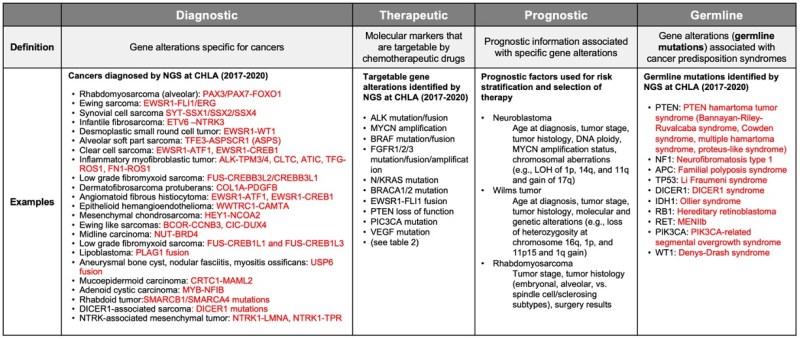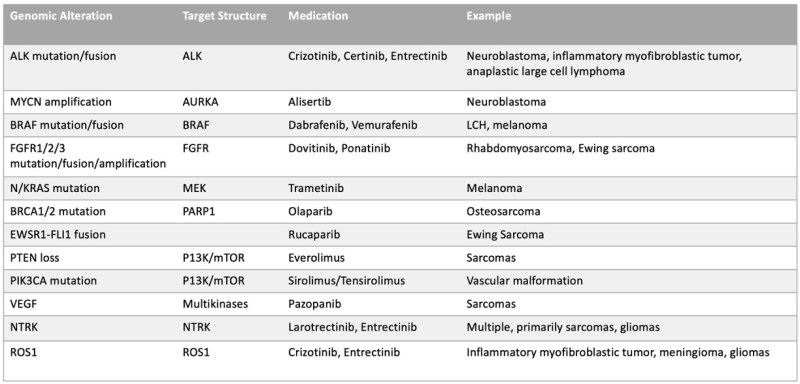Roles of Molecular Testing in Pediatric Tumors
In the past decades, the roles of molecular testing in pediatric oncologic patient care are becoming increasingly important. In the pediatric setting, molecular testing has been used:
- Diagnostic utility: Provide gene alterations specific to cancers
- Therapeutic utility: Detect molecular markers that are targetable by chemotherapeutic drugs
- Prognostic utility: For risk stratification by providing prognostic information associated with specific gene alterations
- Germline mutations: Identifying gene alterations (germline mutations) associated with cancer predisposition syndromes

1. Diagnostic Utility
- Cancer driver genes in pediatric cancers are unique.
- Only 45% of pediatric cancer driver genes are shared with adult cancers.
- Many “small round blue cell” and “spindle cell” tumors have one of the driver gene fusions or mutations diagnostic for the tumors.
2. Therapeutic Utility
- The development of NGS has played an essential role in detecting targetable molecular markers in the era of personalized medicine.

3. Prognostic Utility
4. Germline Mutations
References
- Butler, E., et al., Recent progress in the treatment of cancer in children. CA Cancer J Clin, 2021. 71(4): p. 315-332.
- Sweet-Cordero, E.A. and J.A. Biegel, The genomic landscape of pediatric cancers: Implications for diagnosis and treatment. Science, 2019. 363(6432): p. 1170-1175.
- Ma, X., et al., Pan-cancer genome and transcriptome analyses of 1,699 paediatric leukaemias and solid tumours. Nature, 2018. 555(7696): p. 371-376.
- Trubicka, J., W. Grajkowska, and B. Dembowska-Baginska, Molecular Markers of Pediatric Solid Tumors-Diagnosis, Optimizing Treatments, and Determining Susceptibility: Current State and Future Directions. Cells, 2022. 11(7).
